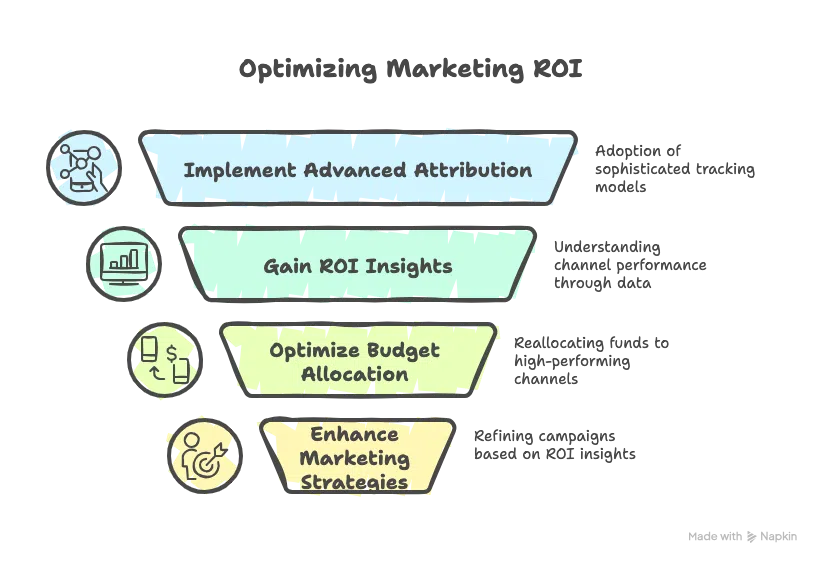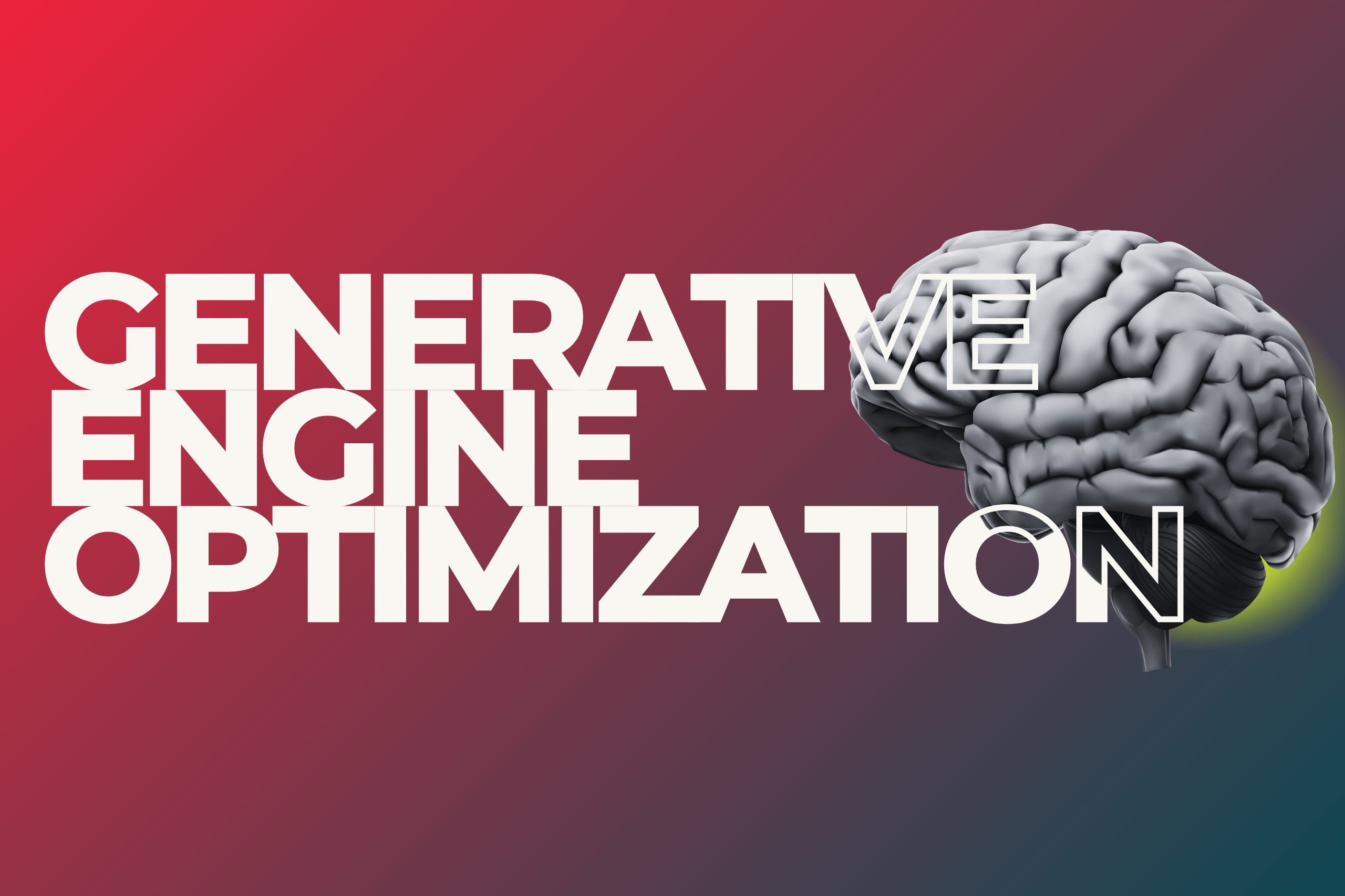Introduction to Marketing Attribution
Marketing attribution is a pivotal concept that enables businesses to measure the effectiveness of their marketing strategies by linking consumer actions to specific marketing touchpoints. As organizations invest resources in multiple channels, understanding which specific efforts contribute to conversions or customer engagement has become increasingly critical. Marketing attribution enables marketers to illuminate the pathways consumers take before making a purchase decision, thereby facilitating more informed and strategic marketing efforts.
The importance of accurate marketing attribution cannot be understated; it provides insights that drive budget allocation, optimize campaign performance, and ultimately enhance return on investment (ROI). With the digital landscape constantly evolving, the challenges associated with accurately attributing marketing success are also growing. From cross-channel tracking to accounting for the influence of external factors, marketers must navigate a complex environment to glean actionable intelligence from their data.
Historically, marketing attribution models have evolved from basic methodologies, such as single-touch attribution, to more sophisticated approaches like multi-touch attribution and algorithmic models. Each advancement has aimed to provide a clearer picture of the consumer journey and the relative impact of different marketing tactics. As the digital ecosystem becomes more intricate, marketers are tasked with adapting their attribution strategies accordingly, ensuring they remain relevant and effective in measuring their campaigns.
As we explore the various models of marketing attribution, it is essential to recognize the emerging challenges that today’s marketers face, including data privacy regulations, the rise of artificial intelligence, and the need for seamless integration across platforms. The landscape is transforming, and understanding how to leverage the right attribution model will be crucial for marketing success in the years to come.
The Importance of Accurate ROI Measurement
In the rapidly evolving landscape of digital marketing, the significance of accurate ROI measurement cannot be overstated. As businesses increasingly allocate substantial portions of their budgets to various marketing channels, understanding the return on investment (ROI) becomes critical for ensuring that resources are used effectively. Accurate marketing attribution plays a pivotal role in this process, enabling organizations to discern which channels drive performance and contribute most significantly to revenue generation.
For instance, a recent study indicates that companies that implement advanced attribution models experience an average uplift of 20% in ROI compared to those using traditional methods. This discrepancy highlights the necessity for businesses to adopt sophisticated tracking mechanisms. By utilizing precise attribution data, organizations can make informed decisions regarding budget allocation, ensuring that funds are directed towards high-performing campaigns while minimizing expenditure on less effective strategies.
Moreover, accurate ROI measurement empowers companies to continually optimize their marketing strategies. With clear insights into which initiatives perform best, marketers can iterate on campaigns swiftly, identify emerging trends, and respond to consumer behavior changes effectively. This adaptive approach supports overall business growth by fostering resilience in a competitive marketplace.
Real-world examples abound, demonstrating the impact of precise ROI measurement on business performance. For instance, a leading retail brand recently revamped its marketing strategy after identifying that email campaigns yielded a significantly higher ROI than paid search ads. By reallocating its budget based on accurate attribution insights, the brand not only enhanced its marketing effectiveness but also significantly increased sales revenue.
Ultimately, in a business environment where every dollar spent must justify its existence, leveraging accurate ROI measurement through effective marketing attribution strategies is indispensable for sustained growth and success.
Trends and Predictions for Marketing Attribution Models by 2025
As we approach 2025, several key trends are poised to shape the evolution of marketing attribution models. These trends are driven by rapid advancements in technology, shifting consumer behavior, and the increasing importance of data privacy regulations. Understanding these trends is essential for marketers who aim to optimize their return on investment (ROI) and effectively allocate their budgets across multiple channels.
One significant trend is the enhancement of artificial intelligence (AI) and machine learning in marketing analytics. As these technologies become more sophisticated, they will enable marketers to analyze vast amounts of data with greater accuracy and speed. This will lead to more reliable attribution models that can account for a wider array of touchpoints within the customer journey. Predictive analytics, powered by AI, will offer insights into future consumer behaviors, allowing marketers to tailor their strategies proactively. The incorporation of these advanced analytical tools is essential for navigating the complexities of multichannel marketing.
Another trend revolves around the evolving nature of consumer behavior. Today’s consumers are more informed, discerning, and engaged than ever before. Their interactions with brands occur across various digital platforms, making it increasingly challenging to pinpoint the precise influence of each channel. Consequently, marketing attribution models must adapt to account for complex customer journeys that involve multiple touchpoints, both online and offline. Additionally, consumers’ preferences for personalized experiences are driving brands to utilize more granular customer data, further complicating attribution efforts.
Furthermore, data privacy regulations are becoming a central theme in shaping future marketing attribution models. Laws such as the General Data Protection Regulation (GDPR) and the California Consumer Privacy Act (CCPA) impose strict guidelines on data collection and usage. Marketers will need to develop attribution strategies that are both effective and compliant with these regulations while still maintaining consumer trust. As a result, incorporating privacy-first methodologies into attribution will be vital in the coming years.
Top Marketing Attribution Models for 2025
As we look toward 2025, marketing attribution models are evolving to better measure the effectiveness of marketing campaigns and accurately determine return on investment (ROI). One prominent model is multi-touch attribution, which evaluates the consumer journey by attributing value to multiple touchpoints across various channels. This model recognizes the importance of each interaction, allowing marketers to identify which strategies yield the highest conversions while providing a holistic view of customer behavior. However, the complexity of tracking various touchpoints may lead to data overload, necessitating robust data management tools.
Another significant model is algorithmic attribution. This model employs machine learning algorithms to analyze data and assign credit to different marketing channels based on their actual contribution to conversions. The advantage of this approach lies in its ability to adapt as new data flows in, providing real-time insights that are crucial for agile marketing strategies. Nonetheless, algorithmic attribution may require a considerable amount of historical data to develop accurate models, which could be a limitation for newer businesses.
Simultaneously, linear attribution maintains its relevance by distributing equal credit across all touchpoints within the customer journey. This method is particularly advantageous for businesses seeking to simplify their attribution strategy. However, its lack of nuance can hinder deeper insights into which specific channels drive conversions more effectively. Another model gaining traction is time decay attribution, which assigns more credit to touchpoints closer to the conversion event, acknowledging that recent interactions often have more weight in decision-making.
As businesses prepare for 2025, selecting the right marketing attribution model is crucial for accurate ROI measurement. Each model presents unique advantages and challenges, highlighting the importance of aligning marketing strategies with business objectives for optimum effectiveness.
Integrating Artificial Intelligence and Machine Learning in Attribution
As the landscape of marketing continues to evolve, the integration of artificial intelligence (AI) and machine learning (ML) in marketing attribution is becoming increasingly significant. These technologies provide robust solutions for processing extensive data sets, significantly enhancing the ability to analyze customer journeys and evaluate marketing campaign effectiveness. By utilizing AI and ML, organizations can glean insights from vast amounts of information, ultimately leading to more accurate ROI assessments.
The capacity of AI to identify patterns and trends within customer data allows marketers to attribute value to various touchpoints throughout the customer journey with greater precision. With machine learning algorithms, businesses can continuously improve their attribution models by learning from previous data interactions. This adaptability results in more personalized marketing strategies and optimizes resource allocation across channels, helping businesses to maximize their budget effectiveness.
Moreover, AI-enabled attribution tools can automate routine tasks and generate real-time analytics. This accelerates decision-making processes and fosters agile marketing strategies that can respond rapidly to changing consumer behaviors. The predictive capabilities of machine learning further empower marketers to anticipate future trends and adapt their approaches accordingly.
However, the use of AI and ML in marketing attribution does introduce certain ethical considerations. The potential for data privacy issues and algorithmic bias must be taken into account, as these factors can severely impact customer trust and brand reputation. Additionally, the reliance on automated systems runs the risk of oversimplifying complex customer behavior, possibly leading to misguided marketing strategies if interpretations are not carefully monitored.
In conclusion, while the integration of artificial intelligence and machine learning in marketing attribution presents substantial advantages, businesses need to navigate the associated ethical challenges responsibly. By doing so, organizations can harness these technologies to refine their marketing strategies and drive more accurate ROI insights in the ever-changing digital landscape.
Challenges Faced in Marketing Attribution
Marketing attribution has become a significant focus for businesses striving to measure their return on investment (ROI) accurately and effectively. However, marketers encounter various challenges when implementing attribution frameworks that can inhibit their ability to achieve precise measurements. One of the primary issues faced is the existence of data silos within organizations. When data is fragmented across different departments and platforms, it becomes increasingly difficult to obtain a comprehensive view of customer interactions and touchpoints. As a result, the analysis often relies on incomplete information, leading to skewed attribution outcomes.
Another significant challenge is the complexity of cross-device tracking. Today’s consumers utilize multiple devices to engage with brands, and traditional attribution models often struggle to connect these interactions. For instance, a potential customer may first engage with an advertisement on their mobile device and later complete a purchase through a desktop computer. Without effective cross-device tracking capabilities, marketers may misattribute the conversion solely to one device, neglecting the multi-channel nature of user behavior. This lack of visibility can severely impact the accuracy of ROI measurement.
Lastly, there is an overemphasis on last-click attribution. While this model offers simplicity, it fails to account for the entire customer journey. Last-click attribution credits the final touchpoint before conversion, disregarding earlier interactions that played vital roles in influencing the buyer’s decision. This narrow focus can lead to misguided marketing strategies that overlook essential channels and tactics. To address these challenges, marketers should consider adopting more sophisticated models such as multi-touch attribution or algorithmic attribution, which take into account the entire customer journey and integrate data from different sources. By overcoming these hurdles, businesses can enhance the accuracy of their marketing attribution efforts and ultimately evaluate their return on investment more effectively.
Case Studies: Successful Attribution Implementation
As businesses continue to navigate the complexities of marketing in an increasingly digital landscape, numerous companies have successfully implemented advanced marketing attribution models to enhance their return on investment (ROI). By examining several illustrative case studies, we can identify key strategies, the attribution models employed, and the results achieved.
One notable example is the multinational technology company, XYZ Corp. By utilizing a multi-touch attribution model, XYZ Corp was able to track the interactions customers had with various marketing channels throughout their buyer’s journey. This model allowed them to assign different value to each touchpoint, enabling a greater understanding of which channels were most effective in driving conversions. As a result, the company reported a 30% increase in campaign effectiveness, ultimately leading to a significant boost in ROI.
Another compelling case is ABC Retail, which faced challenges in measuring the impact of their digital advertising campaigns. Implementing a data-driven attribution model, they focused on analyzing customer interactions across multiple platforms, including social media and email marketing. By assigning appropriate weights to different channels based on their contribution to sales, ABC Retail identified key areas for improvement. This approach led to a remarkable 25% increase in online sales, highlighting the effectiveness of accurate attribution in refining marketing strategies.
Furthermore, DEF Services, a consultancy firm, adopted a fractional attribution model to better understand their lead generation processes. This method allowed them to evaluate the performance of each marketing channel with precision, enabling the firm to allocate resources more efficiently. Following the implementation of this model, DEF Services experienced a 40% reduction in customer acquisition costs, significantly enhancing their overall marketing ROI.
These case studies illustrate the practical application of advanced attribution models in real-world scenarios. By adopting customized strategies tailored to their specific business needs, these companies demonstrated that effective marketing attribution is crucial for determining the true impact of marketing efforts on ROI.
Future of Data Privacy and Its Impact on Attribution
As we look towards 2025, the landscape of marketing attribution is poised to undergo significant changes, primarily driven by evolving data privacy laws and regulations. Measures such as the General Data Protection Regulation (GDPR) and the California Consumer Privacy Act (CCPA) have already instigated a paradigm shift in how marketers collect and process consumer data. These regulations necessitate that businesses adopt transparent data usage practices and prioritize consumer consent, which directly impacts attribution models used to assess marketing effectiveness.
One of the most critical challenges marketers face is the need to balance data utilization for attribution with the imperative to respect consumer privacy. The reliance on third-party cookies and extensive tracking methods, previously staples of attribution strategies, is steadily diminishing. Consequently, marketers must pivot towards privacy-centric approaches that still yield meaningful insights into consumer behavior and campaign performance. Techniques such as aggregated data analysis and the use of first-party data are becoming vital in creating a more compliant and ethical framework for marketing attribution.
Furthermore, the rise of privacy-conscious consumers is compelling businesses to rethink their marketing practices. Marketers must consider the implications of their data practices not only from a regulatory standpoint but also to maintain trust and goodwill among their customer base. This shift highlights the need for innovation in attribution methodologies—such as multi-touch attribution or incrementality testing—that respect user privacy while providing valuable insights into the consumer journey.
In conclusion, the future of marketing attribution is intricately linked with the ongoing evolution of data privacy regulations. As marketers adapt to these new norms, they must develop strategies that safeguard consumer data while still achieving accurate attribution, ultimately leading to a more ethical marketing landscape.
Conclusion: Embracing the Future of Marketing Attribution
As we look toward the future of marketing attribution in 2025, marketers must embrace and adapt to the evolving landscape of attribution models and technologies. Throughout this discussion, we have highlighted the importance of selecting the right attribution model to accurately measure return on investment (ROI) and the impact of various marketing channels. The insights gleaned from multi-touch attribution, machine learning algorithms, and data-driven methodologies underpin the significance of an adaptive approach to marketing strategies.
In today’s complex marketing environment, where customers engage with brands across multiple platforms and touchpoints, understanding how to effectively allocate resources is paramount. By adopting an agile mindset and leveraging advanced attribution tools, marketers can gain a more nuanced view of the customer journey and identify the channels that drive the most significant impact. This adaptability not only enhances ROI but also fosters improved customer engagement and satisfaction.
Moreover, as new technologies continue to emerge, such as artificial intelligence and advanced analytics, organizations must stay informed to leverage these innovations for improved marketing performance. Continuous learning and a willingness to pivot strategies in response to data insights will be invaluable as we navigate this dynamic field. Marketers should collaborate within their teams and across departments to share data and insights, ensuring that marketing attribution practices are refined and optimized consistently.
In conclusion, the future of marketing attribution holds immense potential for those willing to embrace change and invest in their strategies. The journey toward effective attribution is ongoing, and it will require commitment, flexibility, and proactive engagement from marketers to stay ahead in an increasingly data-driven world. Staying abreast of trends and methodologies will be crucial for organizations seeking to maximize the full potential of their marketing efforts and drive sustainable growth.
Related Posts
Understanding Data-Driven Marketing
Learn how data-driven marketing uses analytics to improve campaigns,…
Mastering Generative Engine Optimization
Understanding Generative Engine Optimization (GEO): Key principles, technical…
Is Your Marketing ROI Disappearing in 2025?
Struggling with poor marketing ROI in 2025? Discover how smarter tracking,…







